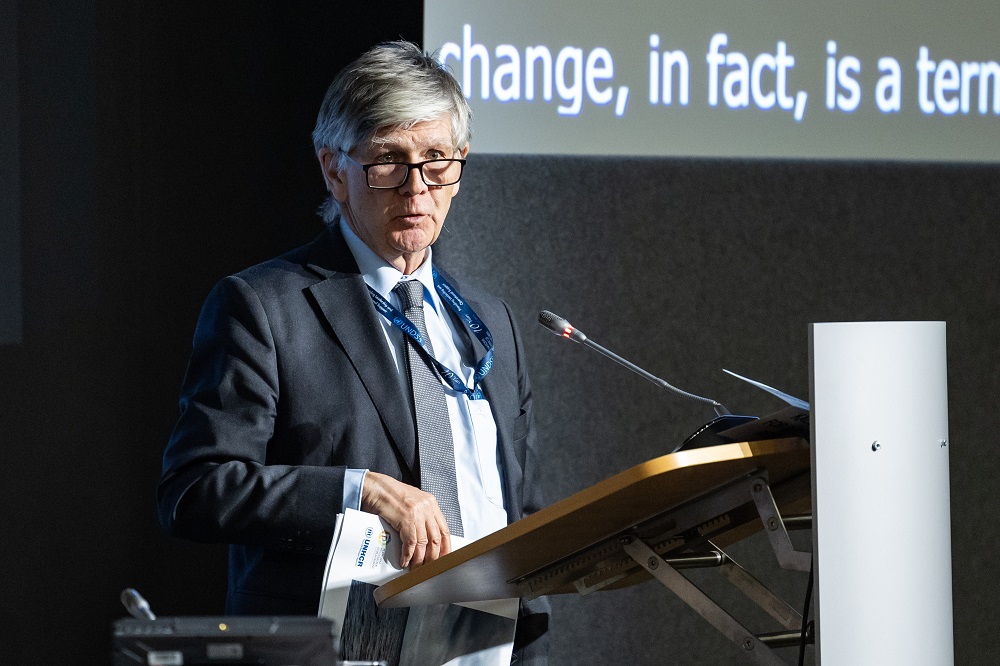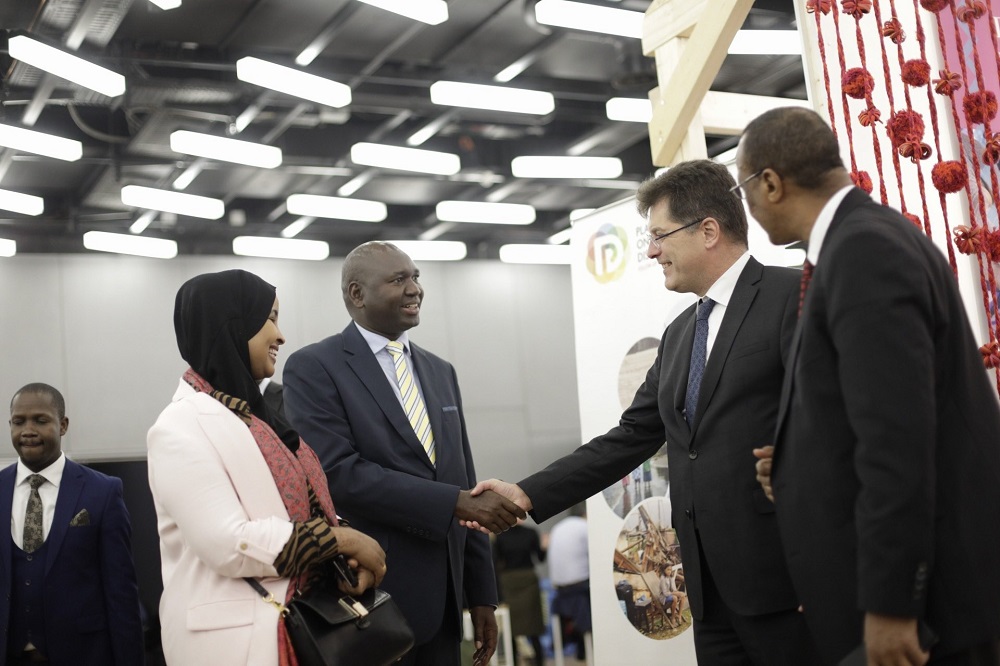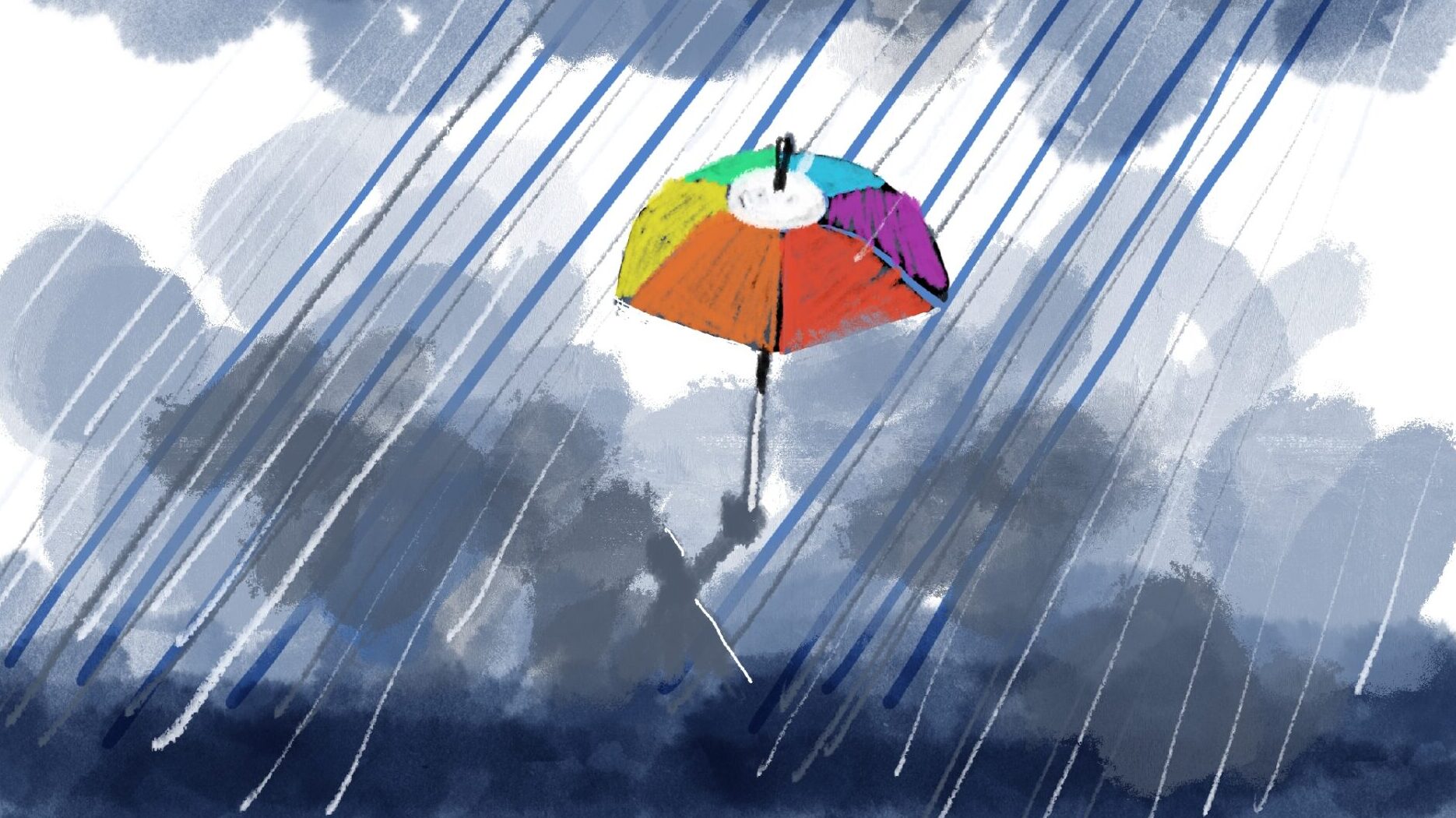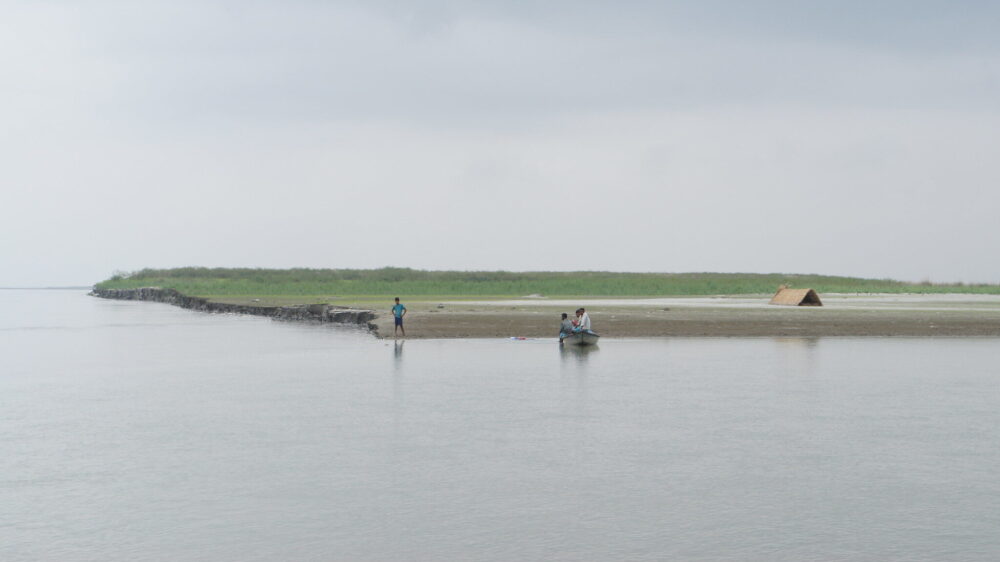Reporting Back from the 2023 Global Refugee Forum

The Platform on Disaster Displacement (PDD) engaged at the Global Refugee Forum 2023 from 13-15 December 2023 in Geneva, Switzerland, with participation of the Envoy, Secretariat, the Steering Group and partners.
Held every four years, the Forum is the world’s largest international gathering on refugees, established to support the practical implementation of the objectives set out in the Global Compact on Refugees: Ease pressures on host countries, enhance refugee self-reliance, increase access to third-country solutions and improve conditions in countries of origin. The Forum attracted over 4,200 participants from 168 countries, including over 300 refugee delegates. A further 10,000 people followed the proceedings online.
The PDD’s engagement at the GRF served to highlight and promote the interlinkages between the GCR, displacement, disasters, and the adverse impacts of climate change. This was primarily carried out through the publication and dissemination of a joint PDD-UNHCR Policy Brief on “Protection of Persons Displaced Across Borders in the Context of Disasters and the Adverse Effects of Climate Change” as well as Key Messages for the GRF prepared by the PDD Steering Group. Recommendations and key messages were strategically promoted and referred to during a high-level event, a Speakers’ Corner, the Plenary debate and throughout discussions at the forum.
Climate Action at the Global Refugee Forum
The issue of displacement related to disasters and the adverse effects of climate change was present in a number of side events, plenary discussions and pledges at the Global Refugee Forum. Most notably, the Multistakeholder Pledge on Climate Action was launched on the first day of the Forum, on 13 December, with the aim to “contribute to strengthening the protection, preparedness, and resilience of refugees, other forcibly displaced and stateless people, and their host communities to climate impacts now and in the future.” As co-leader of this pledge, the Government of Germany pledged continued support to the PDD Secretariat with 1.6 million EUR until 2025. Currently, there are a total of 23 pledges committed to climate action.
 PDD’s engagement around climate action focused on the promotion and dissemination of the said PDD-UNHCR Policy Brief, which Prof. Walter Kaelin, Envoy of the Chair, launched and presented at the Speaker’s Corner on 14 December. The Policy Brief identifies good practices and showcases humanitarian and migration measures already used by States to permit the admission and stay of persons displaced across borders in the context of disasters. It also highlights several scenarios where the 1951 Convention Relating to the Status of Refugees and regional instruments may be applicable, while noting that the role and application of refugee law generally remains limited.
PDD’s engagement around climate action focused on the promotion and dissemination of the said PDD-UNHCR Policy Brief, which Prof. Walter Kaelin, Envoy of the Chair, launched and presented at the Speaker’s Corner on 14 December. The Policy Brief identifies good practices and showcases humanitarian and migration measures already used by States to permit the admission and stay of persons displaced across borders in the context of disasters. It also highlights several scenarios where the 1951 Convention Relating to the Status of Refugees and regional instruments may be applicable, while noting that the role and application of refugee law generally remains limited.
The Envoy Policy Brief was further promoted through an intervention from the floor during the high- level event on Synergies in action: advancing the complementary implementation of the Global Compact on Refugees and the Global Compact for Safe, Orderly and Regular Migration, including through a route- based approach to mixed movements.
Effectively addressing disaster displacement demands a comprehensive toolkit, not just one single policy or legal tool, highlighting the critical need for coherent and complementary application of the GCR and GCM.” – Prof. Walter Kaelin, Envoy of the Chair
Finally, Mr. Atle Solberg, Head of the Secretariat, provided an intervention during the afternoon Plenary on 15 December. Noting that the GCR recognizes that climate change, environmental degradation and disasters increasingly interact with the drivers of refugee movements, Mr. Solberg discussed the recently launched PDD-UNHCR Policy Brief and reiterated that the PDD stands ready to continue to support Member States, UNHCR, and others in their endeavors to strengthen the protection of disaster- displaced persons.
The use of existing protection tools is often random and hard to predict.” – Mr. Atle Solberg, Head of the Secretariat
Handover of PDD Chairmanship
On 15 December, at the margins of the Global Refugee Forum, Mr. Janez Lenarcic, European Commissioner for Crisis Management, met with Mr. Julius Kibet Bitok, Assistant Minister of Interior of Kenya, to mark the handover of the PDD Chairmanship from the EU to Kenya. As of 1 January 2024, Kenya will assume its 18-month tenure as Chair of the PDD.

The Way Ahead
As described in the Summary of the Global Refugee Forum 2023 by the co-hosts and co-conveners, the challenges of global forced displacement call for a redoubling of efforts towards sustainable, long-term solutions. While the transformative potential of pledges made by Member States and other
stakeholders is significant, the true test lies in their implementation and the monitoring of these actions in the years leading up to the next Forum in 2027.
Also key in this journey is the role of regional initiatives including Cartagena +40: at the margin of the Global Refugee Forum, Chile, Brazil, and Colombia organized an event to commemorate the 40th anniversary of the Cartagena Declaration and launched a new consultation process led by Chile to agree on a new regional strategic plan for the next decade. It is significant that Chile will give priority to
addressing protection challenges in a changing climate in the consultation process towards the adoption of a regional declaration and plan of action. This regional commitment will result in a Chile Declaration and Plan of Action in December 2024, and was announced by Colombia as a significant contribution (megapledge) from Latin America and the Caribbean to the second Global Refugee Forum. This focus is in line with the sentiments expressed at the Forum, including by United Nations Secretary-General António Guterres who, in his statement, underscored that “Climate breakdown [is] a growing cause of displacement.”
The commitments made at the Forum offer a roadmap but their effectiveness will be measured by the collective ability to turn pledges into action, particularly in response to the increasing impacts of climate change on vulnerable populations.
Header Photo @IOM / Body Photo @UNHCR





